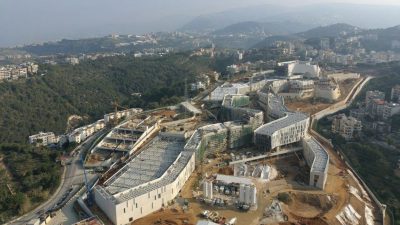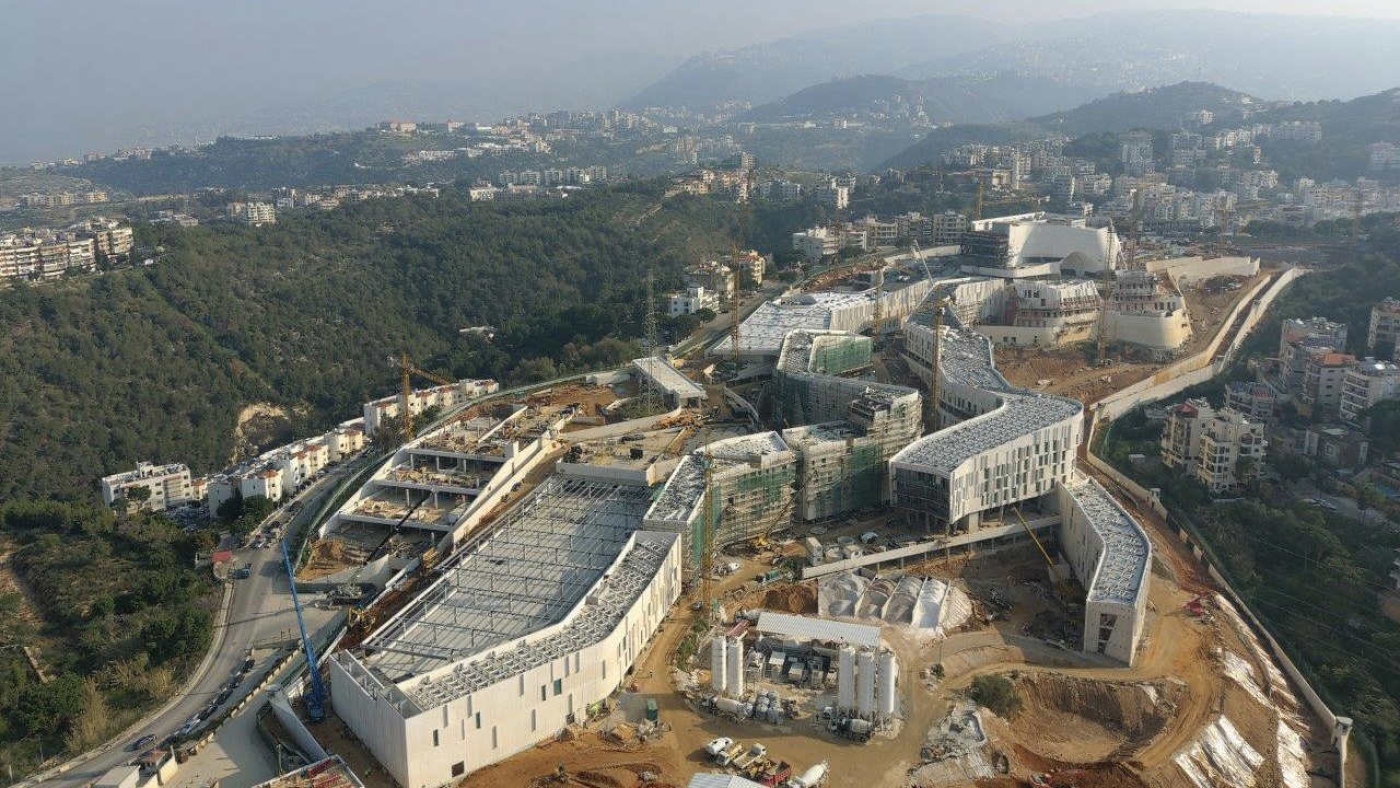Images of Massive US Embassy Compound in Lebanon Elicit Jeers and Questions
The embassy is expected to cost $1bn and will occupy 43 acres in a country facing financial collapse

All Global Research articles can be read in 51 languages by activating the Translate Website button below the author’s name.
To receive Global Research’s Daily Newsletter (selected articles), click here.
Click the share button above to email/forward this article to your friends and colleagues. Follow us on Instagram and Twitter and subscribe to our Telegram Channel. Feel free to repost and share widely Global Research articles.
***
Photographs of the new US embassy compound under construction in Lebanon shared on Twitter on Friday have sparked questions, conspiracies, and some jeers as a result of its massive size.
As of Monday, the photographs, posted by the US embassy in Beirut with the caption, “things are progressing at our new compounds”, had gotten 2.1 million views by the time of publication.

The US embassy under construction in Beirut (Twitter/US embassy Lebanon)
The US announced plans to build the new embassy in 2017 and the compound has been under construction ever since.
Many have questioned why the US needs to build what will be the world’s second-largest embassy in the world after the American embassy in Baghdad, given that the Mediterranean country is home to only six million people and is currently facing a financial crisis.
“This is bigger than the Pentagon,” one Twitter user said. “ What’s planned for this compound other than issuing visas???”
“Room for hundreds of spies and infiltrators? A weapon factory too? another Twitter user asked.
“Any secret bio labs tucked away in that military complex-like building?” asked another.
The embassy is expected to cost $1bn and will occupy 43 acres once completed. The price tag has also raised eyebrows because it comes as Lebanon is facing an economic implosion.
Things are progressing at our new compound! pic.twitter.com/Eb7ogVCAHX
— U.S. Embassy Beirut (@usembassybeirut) May 5, 2023
The US investment comes after Washington’s top Middle East diplomat warned last year that Lebanon faced the potential of a complete “unravelling” of the state and “disintegration”.
Lebanon has been without a functioning government since Former President Michel Aoun’s term ended in October without a replacement. The country’s squabbling politicians have shown little appetite to deal with what the World Bank says is one of the world’s worst economic crises in the past 150 years.
“Thanks for destroying all those trees for a massive military base no real Lebanese wants in their country. Hooray for the Yanks…” said a third.
The US is the largest donor of humanitarian and military assistance to Lebanon, but its sway in the country has been checked by Iran and its proxy Hezbollah.
Washington’s embassies in Lebanon were previously targeted by armed groups.
The US’s embassy in mainly Muslim West Beirut was decimated in a 1983 bombing that killed eight CIA agents. It then moved to predominantly Christian East Beirut, but that building was hit in 1984 by a truck bombing that killed 241 US Marines and 58 French soldiers.
*
Note to readers: Please click the share button above. Follow us on Instagram and Twitter and subscribe to our Telegram Channel. Feel free to repost and share widely Global Research articles.

